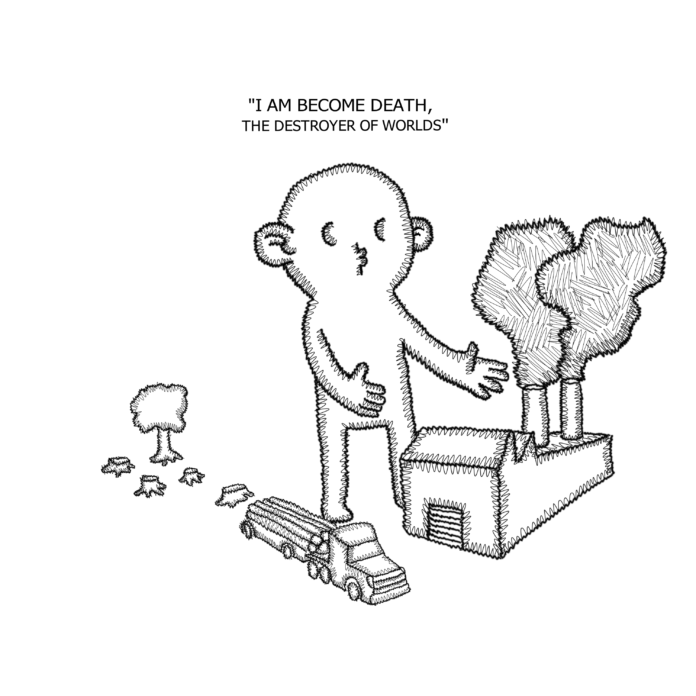Our environment is changing, and we’re witnessing it every year. The summers are getting longer and hotter and the winters shorter and warmer. Policies on immigration, tax rates and health care aren’t the only ones affecting our lives, but it seems these issues are the only ones that matter in comparison to environmental policies. One day, controversies over whether ObamaCare was effective or not will become trivial when our world becomes irreversibly polluted.
President Barack Obama, along with the U.S. Environmental Protection Agency, proposed the Clean Power Plan on Aug. 3, 2015. According to the EPA, this plan is vital for reducing carbon emissions from power plants, which affects climate change. Carbon emissions aren’t the only concern. The EPA is also concerned with regulating the emission of greenhouse gases, such as methane, nitrous oxide and chlorofluorocarbons, which trap heat within Earth’s atmosphere, expediting climate change.
According to a Washington Post article, the 2016 President-elect Donald Trump “vowed to ‘cancel’ the international Paris climate accord.” The Paris Agreement, made on November 4, 2015, is a universal, legal agreement set regulations to limit global warming.
The Paris agreement is only one of many that the new president-elect doesn’t seem to care for. The Washington Post article further states that Trump would change regulations to be less strict about methane controls on domestic drillers, shrink the role of the Environmental Protection Agency and slow progress on the Clean Power Plan. Our future president believes global warming is a hoax, so it’s up to the individual to be well informed and help preserve the environment we live in.
If we do not cut back and regulate emissions of greenhouse gases, the consequences will beat down on our industrious nation sooner than we might anticipate. We already consider 100 degrees Fahrenheit to be hot, can we imagine spending summers at 130 degrees? One of the main long-term effects of climate change is the rise in temperature, as stated by the Third National Climate Assessment Report. In addition, we’ll continue to see an increase in precipitation, droughts and heat waves, stronger hurricanes and increasing ocean acidity throughout the nation.
Although environmental policies regulating climate change don’t seem to affect our daily lives, they are vital to maintain the world we live in and potentially prevent a drastic environmental change. We are already facing decreasing biodiversity due to climate change. Years from now, the animals we see currently may only live in history books, or picture books that we read to our children.
Eight years ago, polar bears became a threatened species due to climate change, according to World Wild Life. Polar bears live on the sea ice of the Arctic Ocean. However, due to global warming, the ice has melted more than it could freeze back. Scientists at the National Snow and Ice Data Center and NASA reported another record low wintertime for the Arctic sea ice in March 2016. Polar bears were saved from extinction and are now listed as “vulnerable” as of September 2016, according to World Wild Life. But can we save every animal from extinction? No, we can’t.
Polar bears don’t seem to have a vital role in our ecosystem, but honey bees do, and they’re also on the path to extinction. Bees are “crucial in maintaining biodiversity by pollinating numerous plant species whose fertilization requires an obligatory pollinator,” stated researchers Y. Le Conte and M. Navajas in their article “Climate change: impact on honey bee populations and diseases.”
So what can we do? According to the EPA, there are many ways we can individually help our environment. Simple changes such as recycling, conserving water and purchasing a fuel-efficient car can all make significant impacts in climate change. Recycling reduces pollution and greenhouse gas emissions, and conserving water helps conserve energy because “three percent of the nation’s energy is used to pump and treat water.” Fuel-efficient cars also help reduce pollution because they cut back on vehicular emissions.
As much as environmental policies are made for preservation purposes, they are also for us, the people living in this world. What is the point in fussing over health care policies, but not caring about pollution? The air we breathe contributes to our health, which will affect our health care. Inevitably, we will have to care about our environment.






